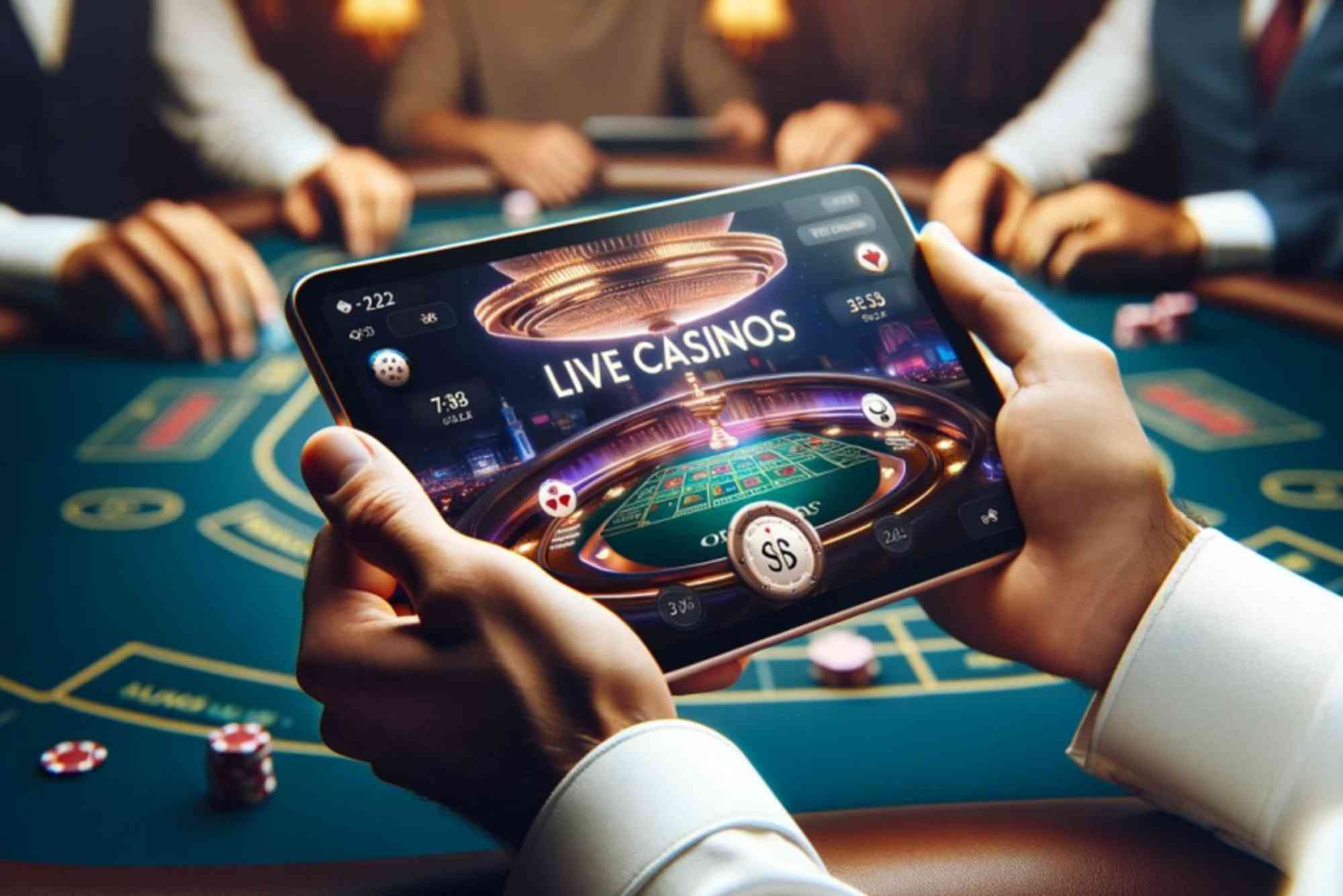Introduction
Live casinos have redefined the online gaming experience, bridging the gap between traditional land-based casinos and digital platforms. By streaming real-time games with professional dealers, players can enjoy an immersive and interactive environment from the comfort of their homes. But how does live casino work, and what makes it different from standard online casinos?
In this comprehensive guide, we’ll unpack how live casinos operate, the technology behind them, game strategies, odds and probabilities, bankroll management, game selection tips, bonus insights, legal considerations, and responsible gambling practices. Whether you’re a seasoned player or a curious newcomer, understanding how live casinos work is essential for maximizing your entertainment and potential rewards.
The Mechanics of Live Casino
Live casino games are powered by cutting-edge streaming technology that broadcasts live footage from a studio or sometimes a real casino floor. Professional dealers manage the games in real-time while players interact via chat or buttons on the interface.
Each game table is fitted with multiple cameras and sensors. Optical Character Recognition (OCR) technology captures everything from card shuffling to wheel spins and translates it into data that appears instantly on your screen. The result is an authentic casino experience accessible through your device.
Behind the scenes, a Game Control Unit (GCU) encodes the video and ensures the game operates smoothly. Every action is monitored and verified, ensuring fair play. Thanks to this setup, live casino players enjoy transparency and trust akin to physical casinos.
Casino Strategies That Actually Work
When it comes to live casino games, strategy isn’t just helpful—it’s essential. Unlike slot machines, live games such as blackjack, baccarat, and roulette involve layers of skill.
For blackjack, basic strategy charts help determine the best action based on your hand and the dealer’s upcard. Card counting is largely ineffective in live formats due to automatic shuffling and limited deck penetration, but sound decision-making significantly improves outcomes.
In roulette, the Martingale and Fibonacci systems are popular but should be used with caution. These betting systems can escalate quickly and deplete your bankroll. The key is to understand the odds and stay disciplined with your wagers.
Live poker variants also require strategy, especially when bluffing isn’t possible due to the digital format. Reading patterns and adopting tight-aggressive play often yield better results.
Understanding Odds and Probabilities
The odds in live casino games mirror those in traditional casinos. For example, European roulette offers a house edge of 2.7%, while blackjack (with optimal strategy) can bring that edge down to under 1%.
Each game has built-in probabilities that dictate your chances. In baccarat, the banker bet offers a low house edge of 1.06%, making it a favorable option. Meanwhile, side bets—though tempting—often carry higher house advantages.
Understanding these odds helps you make informed decisions rather than relying on luck alone. Live games also display real-time statistics and past results, which can guide betting choices but shouldn’t be mistaken for predictors of future outcomes.
Mastering Bankroll Management
One of the most underrated skills in live casino gaming is bankroll management. Your bankroll is your lifeline—treat it with respect.
Set a clear budget before you begin playing. Divide your session into smaller units and resist the urge to chase losses. Even if you’re on a winning streak, it’s wise to walk away once you hit a predetermined profit.
Avoid placing high-risk bets unless your bankroll can absorb the volatility. Choose games and tables that align with your budget, especially when considering betting limits and minimum buy-ins.
Proper bankroll management also enhances your psychological edge. When you’re not playing under pressure, your decisions tend to be sharper and more strategic.
Choosing the Right Game
Game selection is crucial when playing at a live casino. Each game offers a different balance of skill, chance, and pace.
Blackjack is a top pick for those who enjoy fast, strategic play. Roulette appeals to players who prefer a slower pace and a variety of betting options. Baccarat is ideal for those seeking a straightforward, low-edge game, while game shows like Dream Catcher or Monopoly Live offer a light-hearted, luck-driven experience.
Your choice should reflect both your personal interests and your skill level. Explore multiple games in free demo modes if available, then focus on mastering one or two titles.
Remember that live casinos operate on a 24/7 basis, so there’s no need to rush. Take your time exploring the lobby, read the game rules, and observe a few rounds before joining in.
Making the Most of Bonus Offers
Live casinos are increasingly offering tailored bonuses to attract and retain players. These can include welcome packages, cashback offers, deposit matches, and loyalty rewards.
While attractive, not all bonuses are created equal. Always read the terms and conditions—especially wagering requirements. Some bonuses exclude live games or apply higher rollover criteria to them.
Look for bonuses that are specifically designed for live casino games. These often come with more lenient terms and better applicability. Promotions tied to specific events or tournaments can also offer exciting value if you’re already planning to play.
For players also interested in sports betting, checking out platforms that combine live casinos with the best crypto sports betting sites can be beneficial. These integrated platforms provide seamless transitions between games and sports, often under the same wallet.
By understanding how to leverage bonus offers smartly, you can extend your gameplay and potentially increase your winnings without additional investment.
Responsible Gambling: Stay in Control
As thrilling as live casinos can be, it’s vital to play responsibly. The immersive nature of live games can sometimes blur the line between entertainment and compulsion.
Set time and spending limits before you start. Take regular breaks and avoid playing when emotionally compromised. Many reputable casinos offer self-exclusion tools, cooling-off periods, and deposit limits to help you manage your habits.
Educating yourself is the first step to responsible gambling. Utilize resources from organizations like BeGambleAware or the National Council on Problem Gambling if you suspect you’re at risk.
Live casino gaming should be fun, not a financial burden. If it’s no longer enjoyable, it may be time to pause and reassess.
Legal Considerations: Is It Safe and Legal?
The legality of live casinos varies by country and region. In many parts of Europe and the UK, live casinos are fully licensed and regulated. South African players, for example, can access several licensed international platforms, but it’s crucial to verify the operator’s credentials.
Look for licenses from reputable authorities like the UK Gambling Commission, Malta Gaming Authority, or Curacao eGaming. These licenses ensure fair play, data protection, and secure transactions.
Always read the site’s terms of service and confirm they accept players from your region. Legal, regulated live casinos will have transparent privacy policies, responsible gaming protocols, and encrypted payment systems.
You should also consider the payment methods available. Many players now prefer crypto-based platforms for speed and anonymity, making the choice of one of the best crypto sports betting sites especially appealing if you’re seeking versatility across gaming formats.
How Live Casino Works
Live casinos combine the charm of physical gaming with the ease of online access. Understanding how live casinos work—from the technology behind them to the strategies that boost your edge—can significantly enhance your gaming experience.
By mastering game selection, managing your bankroll wisely, and practicing responsible gambling, you place yourself in the best position to enjoy live casino gaming for what it is: entertainment with the possibility of reward.









